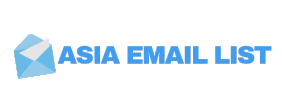Using Whatsapp for Marketing
WhatsApp has transformed the way businesses communicate with their customers, providing a direct and personalized platform for marketing efforts. Leveraging WhatsApp for marketing purposes has become increasingly popular due to its massive user base and high engagement rates. In this article, we will explore the effectiveness of using WhatsApp for marketing and how businesses can harness its potential for successful customer engagement.
Building a WhatsApp Business Account:
The foundation of using WhatsApp for marketing is creating a dedicated WhatsApp Business account. This specialized version of WhatsApp offers features tailored for businesses, including automated greetings, quick replies, and the ability to showcase essential business Qatar Whatsapp number Data information.
Creating a Subscriber List:
Promoting the WhatsApp Business number across various channels allows businesses to build a subscriber list. Encouraging customers to opt-in ensures that businesses reach out to interested and engaged customers, facilitating targeted marketing.
Personalized Communication:
WhatsApp enables personalized, one-on-one communication with customers. Using this advantage, businesses can tailor messages to individual customers, addressing them by name and sending relevant content based on their preferences.
Sending Rich Media Content:
Leveraging WhatsApp’s support for multimedia formats like images, videos, and documents allows businesses to send visually appealing and engaging content to their subscribers, making marketing messages more impactful.
Automating Responses:
Saving time and maintaining promptness is possible through WhatsApp’s automated responses. By creating templates for common queries, greetings, and acknowledgments, businesses ensure a swift response to customer interactions.
Running Promotional Campaigns:
WhatsApp is an effective platform for running promotional campaigns. Offering exclusive deals, discounts, or limited-time offers to subscribers can incentivize customer engagement and drive sales.
Gathering Customer Feedback:
WhatsApp facilitates gathering customer feedback and conducting surveys. Customers appreciate the convenience of responding through WhatsApp, providing businesses with invaluable insights for product improvements and customer satisfaction.
Monitoring Analytics:
WhatsApp Business analytics allow businesses to monitor the performance of their marketing efforts. Analyzing data, such as message open rates and response times, helps refine marketing strategies Asia Email List for better results.
Respecting Customer Privacy:
Obtaining explicit consent from customers before adding them to the WhatsApp subscriber list is crucial. Respecting their privacy and preferences helps build trust and maintain a positive relationship with the audience.
Conclusion:
Using WhatsApp for marketing has proven to be a game-changing approach to customer engagement. By creating a WhatsApp Business account, building a subscriber list, personalizing communication, sending rich media content, automating responses, running promotional campaigns, gathering customer feedback, and monitoring analytics, businesses can effectively harness WhatsApp’s potential for marketing success. As customer preferences evolve, WhatsApp continues to be a powerful platform for fostering meaningful connections and driving business growth. By embracing WhatsApp as a marketing tool, businesses can stay ahead in the competitive landscape and build long-lasting relationships with their valued customers.

